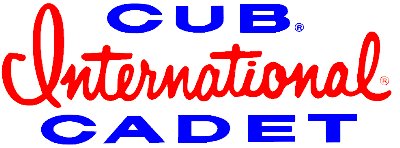BRIAN B. - Matt's right, the number of drive pins have absolutely nothing to do with the clutch engaging smoothly and gradually. That's ALL the teaser spring is for. I've had a couple teaser springs break in all the years Ive run CC's and without them those old GD's are a WHIPLASH machine every time You let out the clutch. If the clutch didn't engage properly with the sping in there You didn't assemble the clutch correctly.
I had a NICE long comment about gasoline for Cubbies typed out, but I deleted it. I'll just say that my 25 yr old Champion D-15Y plugs in my tired old never-rebuilt Super H FARMALL still fire well even when I leave it set idling for an hour in the winter. And My Cubbies run fine with the gas I syphon out of the tank of that Super H. If I ran all my tractors enough to burn 200-300 gal. of gas a year instead of 50-60 gal. I may burn something else in them but what I've used for the last 20+ yrs works great. Even when I leave them sit for 6 months without running.
I had a NICE long comment about gasoline for Cubbies typed out, but I deleted it. I'll just say that my 25 yr old Champion D-15Y plugs in my tired old never-rebuilt Super H FARMALL still fire well even when I leave it set idling for an hour in the winter. And My Cubbies run fine with the gas I syphon out of the tank of that Super H. If I ran all my tractors enough to burn 200-300 gal. of gas a year instead of 50-60 gal. I may burn something else in them but what I've used for the last 20+ yrs works great. Even when I leave them sit for 6 months without running.
















































